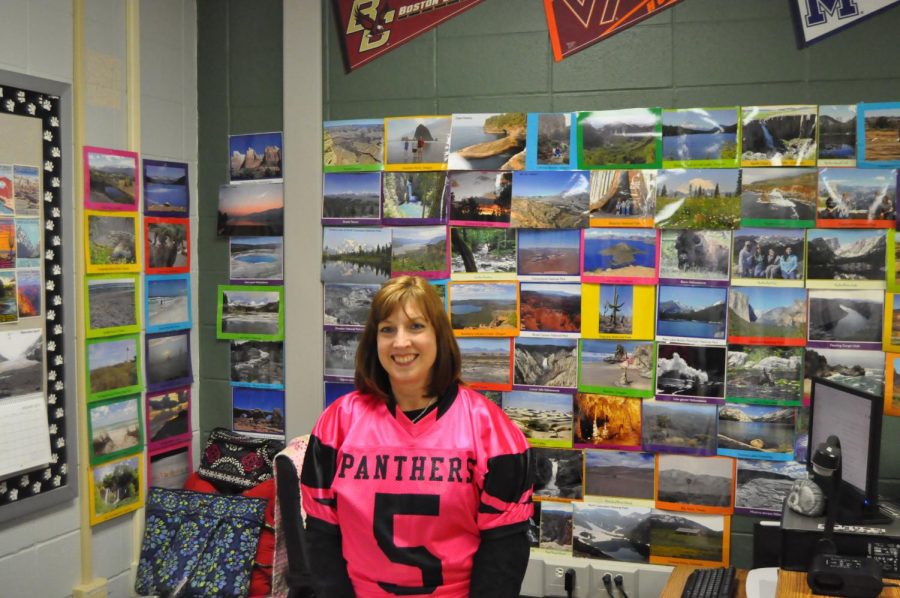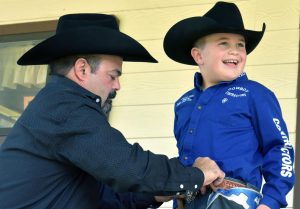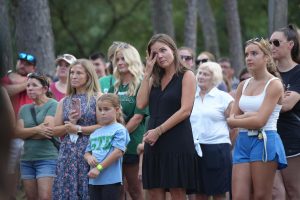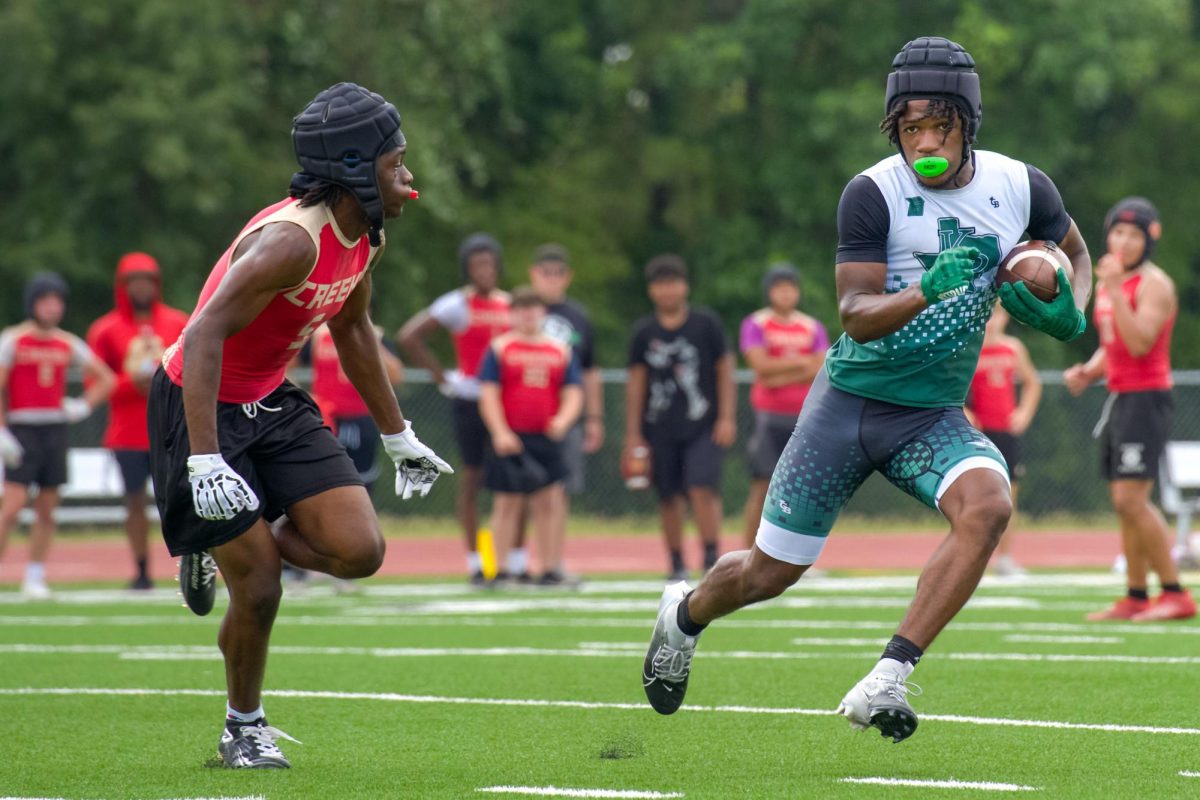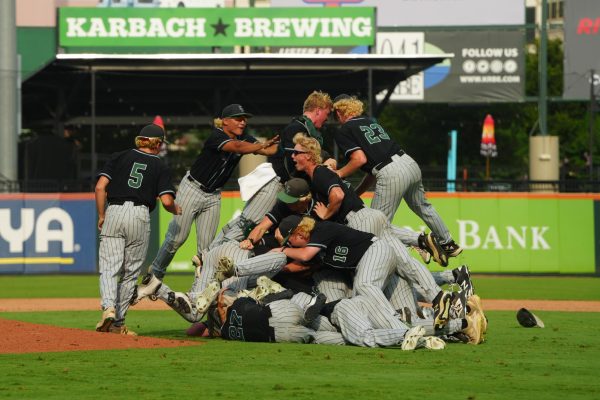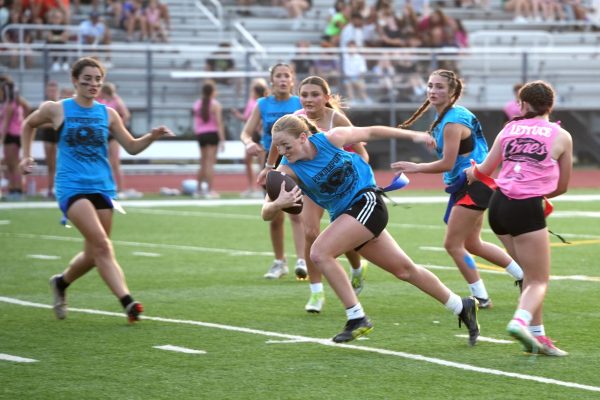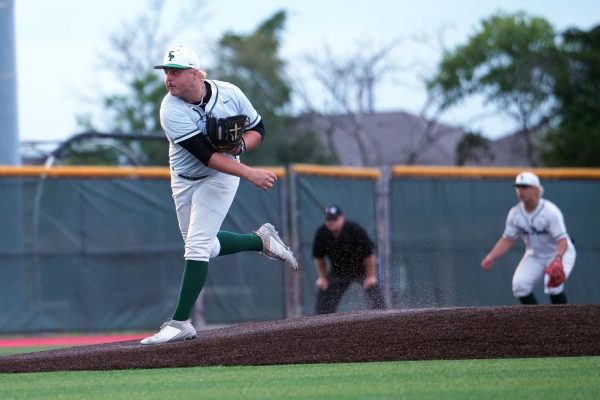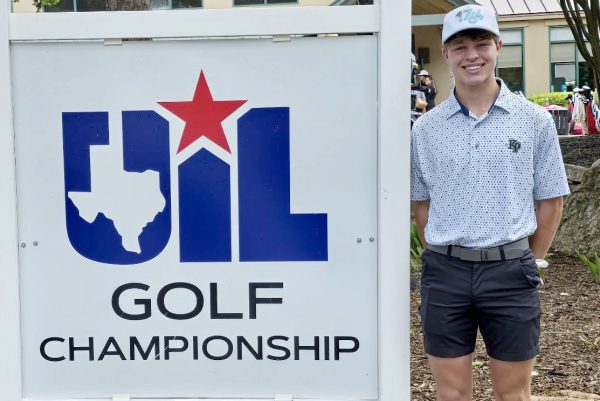Perseverance, strength define Payne
Math teacher Julie Payne just received test results confirming she is free of cancer for the third year.
Payne surrounded by her collection of photographs of National Parks that she has taken herself. Photo by Nick Farace
February 8, 2019
On Halloween of 2014, Julie Payne and her family listened anxiously as the nurse, dressed in a cat costume, delivered the news of her breast cancer diagnosis. She was filled with denial. Wanting to get second opinions, Payne just needed to hear that everything was OK.
Payne’s husband Mark had already been through cancer himself, and he thought he understood what the road ahead held. But for Payne and her family, the coming months would be nothing they imagined. Her early diagnosis would lead to a Stage IV diagnosis later on, and the fight for health took a massive toll on Payne’s daily life.
“The diagnosis was taken as a new challenge that needed to be addressed,” Mark said.
The couple, who married 30 years ago, recalled their “in sickness and in health” vows throughout the entire struggle with cancer.
Payne, a math teacher, struggled to accept the diagnosis early on. She denied it. Then she questioned why her. Ultimately, anger was her primary emotion.
The first step in the process was to get a mastectomy; and after the surgery, Julie Payne was considered cancer free in December 2014.
“We never really celebrated or were excited about it being over. It was always in the back of our minds that it would come back,” she said.
Even though she was in remission, Payne was still held back by the restrains of doctor visits and worries about her health. The chemo had done a lot of damage to her heart, and she was required to visit the cardiologist often.
“I had to plan my life around doctors’ visits, and I planned them really far out; that way I could decide if I would be able to take a trip over the summer or not,” Payne said.
Her remission didn’t last long. Payne went in for a check up in August 2015, only to find out the cancer was back.
“I was mad because the ‘best doctors in the world’ at MD Anderson had told me that they had gotten rid of it all,” Payne said.
The doctors had missed a spot where the cancer had attached to a lymph node in her body.
“What was scary about my diagnosis, was that it was already Stage IV, the worst stage,” Payne said.
This forced Payne into a whole new round of surgeries and treatments, including radiation.
“They set me on the strongest chemotherapy treatment available, and I quickly felt the side effects,” Payne said.
She suffered from hair loss and hand and foot syndrome, which caused the peeling of skin and required her to wear gloves to school. Payne also felt constant tingling and numbness in her arms and legs. A new drug the doctors prescribed for her gave her seizures and uncontrollable shaking.
“I planned my treatments to be on Friday nights so I could have the weekends to recover,” Payne said. “I would be in the hospital until 3 a.m.”
Payne said the students were a huge help and were always so well behaved and accepting of her condition. One week during her treatments, students and faculty collected money to cover costs associated with the treatments and surgeries.
“Julie’s friends and co-workers at Kingwood Park provided an amazing amount of care and support, which was actually the only care and support that we had,” Mark said.
Julie Payne admits that it was hard to accept help because she didn’t want to seem weak, but she is very grateful for all the teachers, staff, and students who aided her on a day to day basis.
“I really got a lot of teachers helping me out with everything, whether it was taking me to radiation treatments downtown or just being kind in the halls,” Payne said.
Her immune system was greatly affected by the second round of treatments, breaking it down and making it weak. She was very careful around people, and she stayed home most of the time.
“I wouldn’t leave my house for anything except to teach here at school,” Payne said.
Payne’s journey with cancer ended when she was declared in remission in January 2016. This year, she is celebrating her third year of beating cancer. She goes in for an annual CT scan each January, and the Paynes recently received the good news that she was still free from the disease.
“The biggest thing for me [during the process] was not wanting my kids to worry about me,” Payne said. “My son had gone off to college and I didn’t even tell him the severity of the cancer until he came to visit.”
Mark said his wife’s strength and perseverance was evident throughout her entire fight with cancer.
“Few people realize that Julie went from ‘catching it early and not needing chemotherapy and radiation’ to Stage IV invasive metastatic cancer in eight months,” he said.
Payne’s victory over breast cancer in 2016 was the first time in two years where she controlled her own life. She began planning trips to national parks and looked forward to enjoying life on her own time. The breast cancer survivor now sits behind her desk in room 2207 thankful for each new day to do what she loves most: teaching the future of the world while sitting amongst all the photographs of national parks hanging on the wall, all taken by Payne herself.
“I don’t have the ‘I’ll do this later’ mentality anymore,” Payne said. “If I want to take a trip somewhere, I find a way to make it happen. I do everything I am capable of.”


